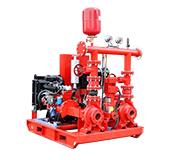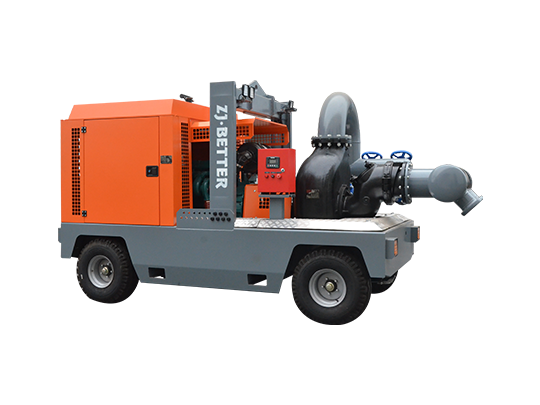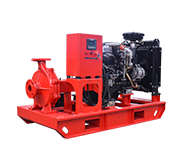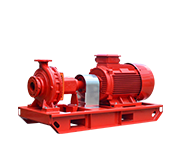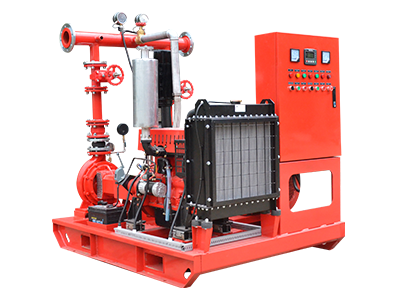- Fire Pump System
-
- UL-Listed Fire Pump SetEDJ End Suction Fire Pump SetEDJ Fire Pump SetEJ Small Flow Fire Pump SetFire Pump PackagesContainerized fire pump setDiesel Fire Pump SetED Small fire pump setElectric Jockey Fire Pump SetFire Pump Set with Jockey PumpFire Pump SystemSplit Case Fire Pump SetMutistage EDJ Fire Pump SetDiesel Fire Pump Set with Jockey PumpFire Fighting Pump SystemElectric Diesel Jockey Fire Pump SetFire Fighting Pump Set with Jockey PumpSmall Capacity Electric Fire Pump SetDJ Fire Pump Set with Jockey PumpEJ Fire Pump SetED Fire Pump Set (Electric+Diesel pump)Diesel Engine Fire Pump SetDiesel Fire Jockey PumpSmall Fire Pump SetEDJ Fire Pump SystemFire Water Pump SetFire Pump AssemblyDJ Small Flow Fire Pump SetCummins Engine Fire Pump Set
- Mobile Pump Unit
-
- Split Case Series Mobile Pump TruckSelf Priming Series Mobile Pump TruckCentrifugal diesel driven dewatering pumps open frame trailerFlow-mixing Mobile Pump TruckFlow-mixing Mobile Pump TruckManure Pump TruckP12 modle mobile Pump truckP10 Modle Mobile Pump Truck1000m³Self Priming Series Mobile Pump TruckLarge Flow Non-Clogging Mobile Fire Pump TrailerTrailer Mounted Fire PumpFire Emergency Mobile Pump TruckDiesel Engine Emergency Mobile Trailer Pump
- Diesel Fire Pump
-
- UL Listed Diesel End Suction Fire PumpXBC-S Diesel Split Case Fire PumpXBC-IS Diesel End Suction Fire PumpXBC-D Diesel Multistage Fire PumpVertical Turbine Diesel Engine Fire PumpDiesel Engine Single-Stage Centrifugal PumpXBC-IS Diesel End Suction Fire Fighting PumpXBC-S Diesel Engine Split Case Fire PumpDiesel Engine End Suction Fire PumpXBC-IS Diesel End Suction Fire PumpsZWC Diesel Engine Self Priming Pump for IrrigationDiesel Engine End Suction Fire Fighting PumpXBC-S Heat Exchange Diesel End Suction Fire PumpXBC-XA Diesel Engine End Suction Fire PumpXBC-IS Diesel Engine Fire PumpDiesel Engine End Suction Fire PumpXBC-IS Diesel Engine End Suction Fire PumpXBC-ISO Diesel Fire Fighting PumpPortable Fire PumpFire Booster Pump

Email: zjbetter@119pump.com
Tel:+86 15336708022(Gloria) +86 13306708055 (Ivy) +86 13357006058 (Serena) +86 13357022877 (Wendy) +86 17757009882(Kate)
Fax:0086-570-3010238
-
Are there any special considerations for protecting electric fire pumps from environmental factors such as freezing temperatures or corrosive conditions?
Yes, electric fire pumps installed in environments with freezing temperatures may require additional measures such as insulation or heat tracing to prevent water lines from freezing. Similarly, pumps installed in corrosive environments may need special coatings or materials to protect against corrosion and extend their lifespan.
View more +
-
Are there any specific maintenance tasks that need to be performed on electric fire pumps?
Yes, regular maintenance is crucial to ensure the reliable operation of electric fire pumps. Maintenance tasks may include periodic inspection of motor bearings, lubrication of moving parts, testing and calibration of control systems, checking for leaks in piping and connections, and testing the pump's performance through simulated fire scenarios.
View more +
-
What are the key factors to consider when selecting the location for installing an electric fire pump?
When selecting the location for installing an electric fire pump, several factors must be considered. These include accessibility for maintenance and servicing, proximity to the water source, compliance with building codes and regulations regarding fire pump installations, space availability, and environmental conditions such as temperature and humidity.
View more +
-
Are there any specific safety considerations when operating electric fire pumps?
Yes, safety is paramount when operating electric fire pumps. It's essential to ensure that personnel responsible for operating and maintaining the pumps are adequately trained. Safety measures may include following proper lockout/tagout procedures, wearing appropriate personal protective equipment, and adhering to electrical safety protocols.
View more +
-
What are the environmental considerations associated with electric fire pumps?
Electric fire pumps are generally more environmentally friendly than diesel-driven pumps since they do not produce emissions during operation. Additionally, proper maintenance and leakage prevention measures can help minimize the risk of environmental contamination from spills or leaks associated with the pump system.
View more +
-
What are the advantages of using an electric fire pump?
Electric fire pumps offer several advantages, including reliability, consistent performance, and ease of maintenance compared to diesel-driven pumps. They also eliminate the need for onsite fuel storage and reduce emissions.
View more +
-
How does an electric fire pump work?
Electric fire pumps are typically powered by electricity and consist of an electric motor, pump assembly, and control panel. When a fire is detected, the pump starts automatically, drawing water from a water source such as a tank or a municipal water supply, and delivers it to the fire protection system.
View more +
-
What are the challenges associated with installing and maintaining diesel fire pumps in remote or environmentally sensitive locations, such as national parks, wildlife reserves, and conservation areas
Installing and maintaining diesel fire pumps in remote or environmentally sensitive locations, such as national parks, wildlife reserves, and conservation areas, can present unique challenges due to limited access, environmental regulations, and conservation concerns. These challenges may include transporting equipment and supplies to remote sites, navigating rugged terrain and sensitive ecosystems, and complying with strict environmental regulations to minimize impacts on wildlife and natural habitats. Additionally, diesel fire pumps used in environmentally sensitive areas may require additional safeguards to prevent fuel spills, emissions, and noise disturbances that could disrupt local ecosystems and wildlife populations. By implementing careful planning, environmental assessments, and
View more +
-
How do diesel fire pumps contribute to fire safety in transportation infrastructure, such as airports, railway stations, and tunnels, where the potential impact of fire incidents on public safety and
Diesel fire pumps play a vital role in ensuring fire safety within transportation infrastructure, where the potential impact of fire incidents on public safety and operations is significant. These pumps provide a reliable and robust firefighting capability, capable of delivering high-pressure water streams to suppress fires effectively in diverse environments, including airports, railway stations, and tunnels. By integrating diesel fire pumps into their fire protection systems, transportation authorities can enhance their resilience to fire emergencies, minimize disruptions to passenger and cargo operations, and mitigate the potential consequences of fire incidents, helping to safeguard the traveling public and critical transportation assets.
View more +
-
What are the considerations for selecting the appropriate capacity and configuration of diesel fire pumps for different building types and occupancy classifications?
Selecting the appropriate capacity and configuration of diesel fire pumps for different building types and occupancy classifications requires careful consideration of factors such as building size, occupancy load, fire hazard classification, and water demand for firefighting purposes. Buildings with larger floor areas or higher occupancy levels may require multiple diesel fire pumps or higher capacity pumps to ensure adequate coverage and redundancy. Additionally, facilities with specialized fire protection needs, such as high-rise buildings, hazardous occupancies, or critical infrastructure facilities, may require customized pump configurations and enhanced performance capabilities to meet regulatory requirements and mitigate fire risks effectively.
View more +
-
What role do diesel fire pumps play in safeguarding critical infrastructure facilities, such as power plants, water treatment plants, and transportation hubs, from the threat of fire emergencies?
Diesel fire pumps play a critical role in safeguarding critical infrastructure facilities from the threat of fire emergencies by providing a reliable and robust firefighting capability. These facilities often have unique fire protection challenges, such as the presence of flammable materials, high-risk processes, or remote locations, which require specialized fire suppression systems and equipment. Diesel fire pumps can provide the necessary water pressure and flow rates to protect critical infrastructure assets and mitigate the potential consequences of fire incidents, helping to ensure the continuity of essential services and operations. By incorporating diesel fire pumps into their fire protection strategies, critical infrastructure facilities can enhance their resilience to fire emerge
View more +
-
How do environmental factors, such as temperature and humidity, affect the performance and maintenance requirements of diesel fire pumps?
Environmental factors such as temperature and humidity can significantly impact the performance and maintenance requirements of diesel fire pumps. Extreme temperatures can affect the viscosity of fuel, engine lubrication, and cooling system efficiency, leading to starting difficulties, increased wear and tear, and potential overheating issues. High humidity levels can also contribute to corrosion and moisture buildup within the pump's components, necessitating additional corrosion protection measures and more frequent maintenance intervals. Facilities operating in harsh environmental conditions may need to implement specialized maintenance practices and equipment upgrades to ensure the reliable operation of diesel fire pumps under challenging circumstances.
View more +
-
How can facilities ensure compliance with insurance requirements and maintain adequate coverage for fire protection systems, including diesel fire pumps?
Ensuring compliance with insurance requirements and maintaining adequate coverage for fire protection systems, including diesel fire pumps, is essential for mitigating financial risks and ensuring business continuity. Facilities should regularly review their insurance policies and consult with insurance providers to understand coverage requirements for fire protection equipment and systems. This may include demonstrating compliance with relevant codes and standards, conducting regular inspections and testing, and documenting maintenance activities and system performance. By proactively addressing insurance requirements, facilities can minimize liability exposure and maintain confidence in the reliability and effectiveness of their fire protection measures. Ensuring compliance wi
View more +
-
What are some common issues or challenges with vertical turbine fire pumps?
Common issues may include pump cavitation, mechanical failures, motor overheating, and problems with suction or discharge valves. Regular maintenance and inspections can help identify and address these issues promptly.
View more +
-
Are vertical turbine fire pumps suitable for outdoor installations?
Yes, vertical turbine fire pumps can be installed outdoors, provided they are protected from environmental elements and meet the necessary safety standards and regulations.
View more +
-
What are some common misconceptions or myths about diesel fire pumps?
Common misconceptions or myths about diesel fire pumps may include beliefs about their maintenance requirements, operational capabilities, environmental impact, or suitability for specific applications. Addressing these misconceptions through education, training, and outreach efforts can help improve understanding and awareness of diesel fire pump systems and their role in fire protection and life safety.
View more +
-
What role do diesel fire pumps play in fire protection systems within large-scale industrial facilities?
In large-scale industrial facilities, diesel fire pumps are often a critical component of the fire protection system. These facilities typically have complex layouts, high fire risks, and specialized equipment that require robust firefighting capabilities. Diesel fire pumps provide a reliable and independent water supply, ensuring that sufficient water pressure is available to combat fires effectively, even in remote or hazardous areas of the facility.
View more +
-
Are there any environmental concerns associated with diesel fire pumps?
Diesel fire pumps emit exhaust gases during operation, which can contribute to air pollution if not properly controlled. It's essential to comply with environmental regulations regarding emissions and to implement measures such as proper ventilation and emission controls.
View more +
-
Can a diesel fire pump be used for other purposes besides fire protection?
While the primary purpose of a diesel fire pump is fire protection, it can also be utilized for other applications such as irrigation, water transfer, and dewatering in construction sites or flood control situations.
View more +
-
Can a diesel fire pump be automated for remote operation?
Yes, modern diesel fire pump systems can be equipped with automation and remote monitoring capabilities, allowing for remote start-up, shutdown, and monitoring of system status. This enhances operational flexibility and enables prompt response to fire emergencies even in unmanned facilities.
View more +
-
What are the different types of diesel fire pumps available?
Diesel fire pumps are available in various configurations, including horizontal split-case pumps, vertical turbine pumps, and vertical inline pumps. The selection of pump type depends on factors such as space constraints, system requirements, and efficiency considerations.
View more +
-
What are the key components of a diesel fire pump system?
A diesel fire pump system typically consists of several components, including the diesel engine, pump assembly, fuel tank, control panel, piping, valves, and instrumentation. Each component plays a crucial role in ensuring the reliable operation of the fire pump system.
View more +
-
What are the key components of a diesel fire pump system?
A diesel fire pump system typically consists of several components, including the diesel engine, pump assembly, fuel tank, control panel, piping, valves, and instrumentation. Each component plays a crucial role in ensuring the reliable operation of the fire pump system.
View more +
-
What are some common troubleshooting issues with diesel fire pumps?
Common troubleshooting issues with diesel fire pumps may include fuel system problems such as clogged filters or air leaks, engine-related issues like overheating or loss of power, pump malfunctions such as cavitation or impeller damage, and electrical system failures. Conducting regular inspections and preventive maintenance can help identify and address these issues before they impact the pump's performance during an emergency.
View more +
-
What are some best practices for maintaining diesel fire pumps in optimal condition?
Best practices for maintaining diesel fire pumps include following the manufacturer's recommended maintenance schedule, conducting regular inspections of critical components such as belts, hoses, seals, and bearings, performing routine lubrication and fluid checks, and keeping detailed records of maintenance activities and any repairs or replacements performed. Additionally, it's essential to address any issues promptly and to ensure that all maintenance personnel are adequately trained and equipped to perform their duties safely and effectively.
View more +

